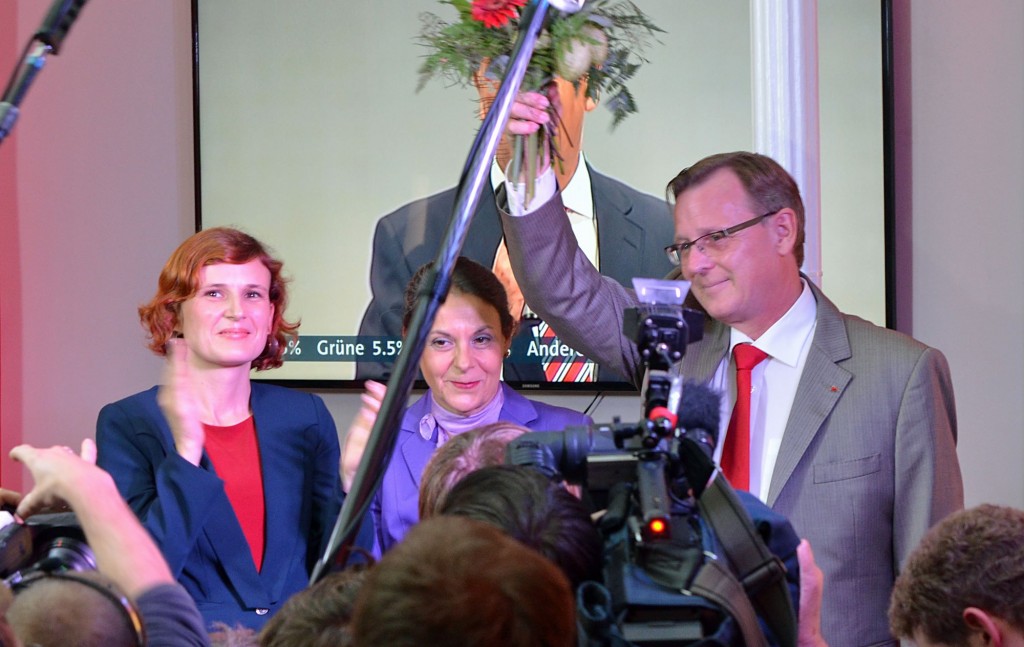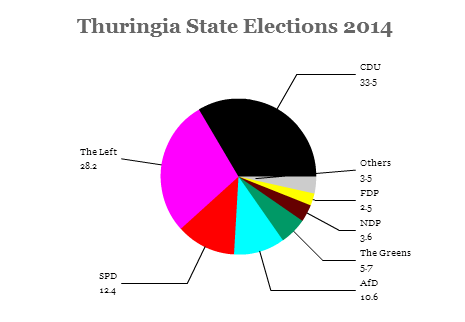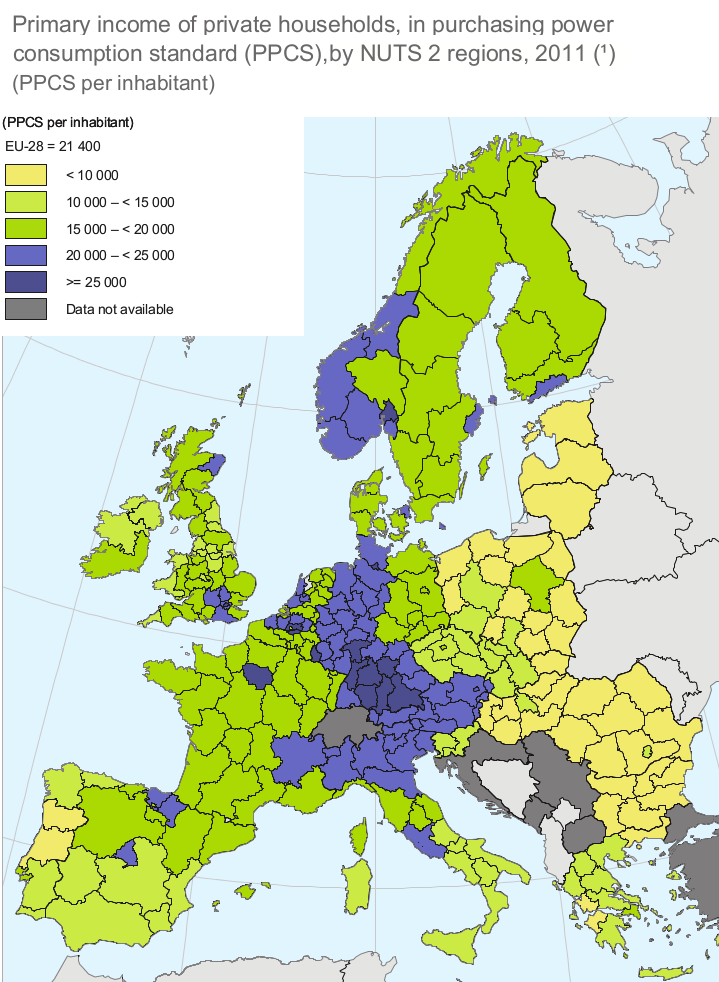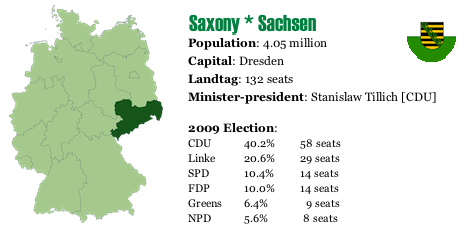With the world’s attention more focused on Scotland’s independence referendum this week — or even on Sweden’s national elections — it’s tempting to give short shrift to two state elections in eastern Germany last weekend. But, taken together, they portend major implications for the future of German politics.
The first is the now undeniable rise of the conservative, eurosceptic Alternative für Deutschland (AfD, Alternative for Germany). Having narrowly missed the 5% threshold to win seats at the national level last September, the AfD won nearly 10% the August 31 elections in the eastern state of Saxony.
In the September 14 elections, the AfD blew past 10% in both states — winning 12.2% of the ‘list’ vote in Brandenburg and 10.6% of the vote in Thuringia. Not only has the AfD displaced the fast-withering Freie Demokratische Partei (FDP, Free Democratic Party), it now threatens to steal both social and economic conservative voters from the Christlich Demokratische Union Deutschlands (CDU, Christian Democratic Union) of three-term chancellor Angela Merkel. Years of Merkel’s cautious pragmatism and two ‘grand coalition’ governments may have caught up to the CDU, giving the AfD a wide berth on the German right.
* * * * *
RELATED: CDU wins Saxony, but faces tougher road in two weeks’ time
RELATED: Left hopes to make eastern breakthrough in
German state elections
* * * * *
Meanwhile, Germany’s socialist party, Die Linke (Left Party), will continue as the junior partner to the center-left Sozialdemokratische Partei Deutschlands (SPD, Social Democratic Party) in the Brandenburg state government. More extraordinarily, it has supplanted the SPD as the clear party of the left in Thuringia.
Its leader, Bodo Ramelow (pictured above) could become the state’s next minister-president, which would mark the first time that the Left has controlled any state government in Germany. Established after reunification as the remnants of the former East German socialist party, it now also includes a significant band of former disaffected left-wing SPD members and supporters.
Continue reading Thuringia and Brandenburg election results: Left, AfD on the rise




